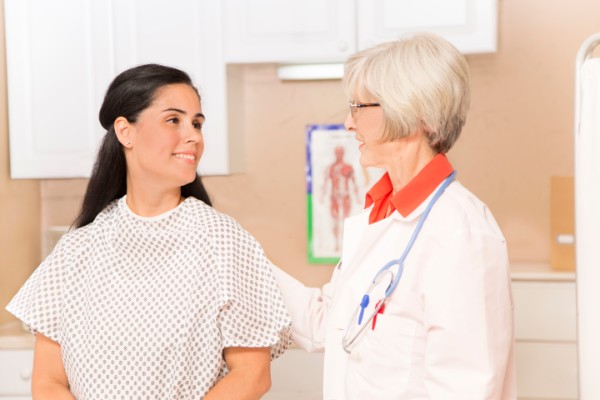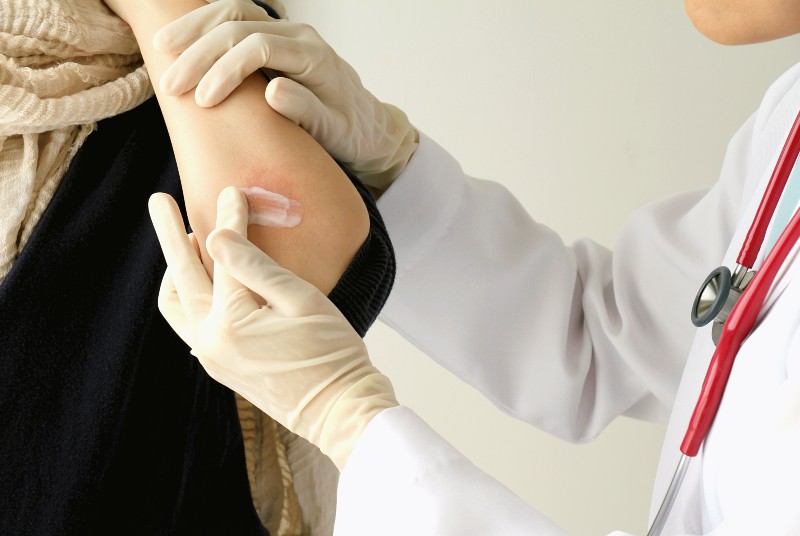As a woman, you’re likely well aware of the risk of breast cancer – which, according to the American Cancer Society, affects 1 in 8 women during their lifetime.
Getting routine mammograms after age 40 along with clinical breast exams can help you and your health care provider spot and treat breast cancer early.
But do you also know how to spot early signs of the five gynecologic cancers, which affect organs of the female reproductive system?
“Routine Pap tests to check for cervical cancer should be part of every woman’s cancer prevention routine,” says William Irvin, M.D., gynecologic oncologist with Riverside Health System. “But it’s also important for women to know their bodies so they can easily spot early warning signs of other gynecologic cancers.”
Understanding the types and risks of female reproductive cancers
The five main types of gynecologic cancers include:
- Cervical cancer – cancer of the cervix
Risk factors: Most cervical cancer is caused by strains of human papillomavirus, which spreads through sexual contact. Additionally, women who had their first child younger than age 20 and who have had at least three full-term pregnancies are at increased risk. - Ovarian cancer – cancer of the ovaries
Risk factors: Heredity, smoking, age (risk increases after age 40), being overweight, having first child after age 35, and using certain hormone therapies during menopause. - Uterine cancer – cancer of the uterus
Risk factors: Age (risk increases after age 50), obesity, use of certain hormone therapies during menopause, struggles with infertility, and heredity. Uterine cancer is the most common form of gynecologic cancer in the U.S. - Vaginal cancer – cancer of the vagina
Risk factors: HPV infection, weakened immune system, age (risk increases after age 40), smoking, and being born to a mother who took the hormone DES between 1940 and 1971 to prevent miscarriage. - Vulvar cancer – cancer of the vulva
Risk factors: HPV infection, HIV infection, weakened immune system, smoking, and age (risk increases after age 50).
Symptoms of gynecologic cancers
Early warning signs of the five gynecologic cancers can include:
- Abnormal periods (including irregular cycles, increased pain or heavy bleeding)
- Vaginal bleeding or discharge between periods or after menopause
- Pelvic pain or pressure
- Bleeding or pain during or after sex
- Back or abdominal pain
- Pain during urination
- A change in bathroom patterns, including increased frequency, constipation or bloody stools
- Changes to the skin of the vulva, including sores, ulcers, warts, lumps or rashes
Screening for female reproductive cancers
Unfortunately, there are no screening options for ovarian, uterine, vaginal or vulvar cancers. Only cervical cancer has a screening test – the Pap test, commonly called the Pap smear.
“That is why it’s so important for women to be attuned to what’s normal for their bodies and cycles – and that they speak to their health care providers when something feels out of the ordinary,” says Dr. Irvin.
Testing for cervical cancer
Pap tests – which can be conducted during a routine gynecological exam or primary care physical – screen for cancerous or precancerous cells on the cervix.
The American College of Obstetricians and Gynecologists recommends having your first Pap test at age 21. If results are normal and you’re not at increased risk for developing cervical cancer, schedule a repeat test at least every three years through age 65. Women over age 65 with a lifetime history of negative Pap screens can opt to stop screening.
“If you’re experiencing unusual pelvic pain or vaginal discharge or bleeding, don’t ignore it,” says Dr. Irvin. “Reporting those signs to your doctor can be the first step in detecting gynecologic cancers – and treating them early.”
Need to schedule a gynecologic checkup? Riverside Partners in Women’s Health are here to help. Find the women’s health practice nearest you.



